The Dark Knight: The Films of Christopher Nolan – Part 2
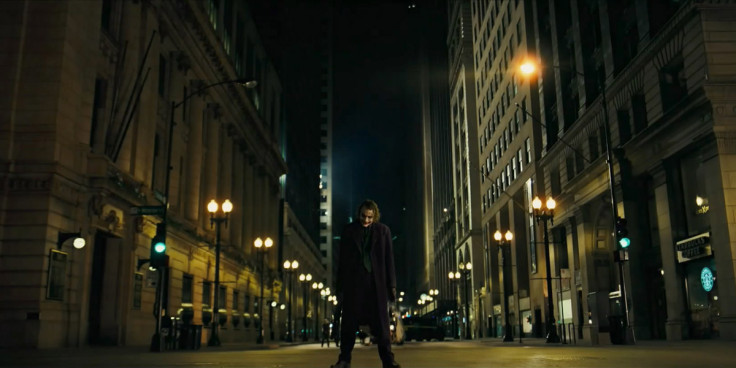
In our continuing series, IBTimes UK takes a look at the work of British director Christopher Nolan in the lead up to the November release of his ninth film, Interstellar. This week we look at The Dark Knight. In part one we covered the film's many themes, here is part two...
The Dark Knight was a landmark moment in Hollywood history and for Nolan, his magnum opus, bringing together the traits, themes and skills he learned on his five prior films. In part one, we talked about the ruling themes of his crime epic, so now we turn to the actors who played out the Nolan and his brother Jonathan's grand narrative.
Heath Ledger owns this film. The extent of his methods were perhaps exaggerated by the media following his death six months prior to the film's release but it is no secret he put an extraordinary amount of work into creating one of cinema's most memorable characters.
In fact his tragic, untimely passing only added to the mystique he created around an iconic take on an already iconic villain.
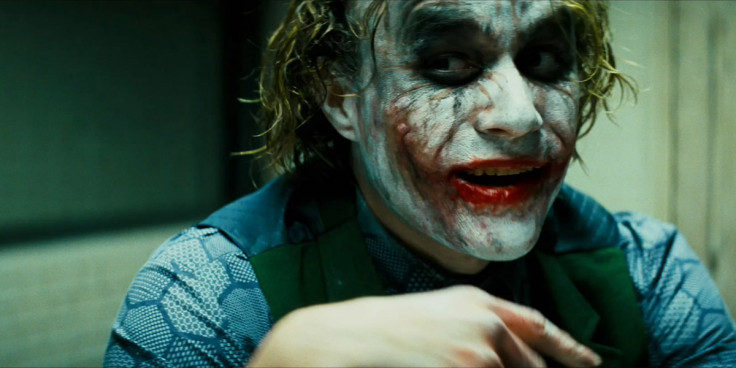
A licking of his lips, that unforgettable voice, his drastic changes in tone, the very look in his eyes: all parts of a complete performance that made this Joker a villain in a similar vein to the shark of Jaws or the alien of Alien – a monster with all the power, who could appear and cause carnage at any moment he chooses.
Looking at scenes from the film, it remains incredibly difficult to see the beloved actor beneath the make-up and performance. That is a true work of genius and it is one that would have been deserving of the best supporting actor Oscar he received posthumously even if he had not died.
Of course everyone else pales in comparison to Ledger but still Aaron Eckhart turns in a fantastic performance as Harvey Dent, the character around which the film really revolves. The actor plays the two sides of his character expertly as Dent undergoes the most drastic and tragic character arc of the film.
Gary Oldman, as Commissioner Jim Gordon – the only relatively normal person in the film's primary cast – also does exceptionally well but do you really expect any less from him? This leaves Christian Bale in the cold somewhat, but not through any fault of him, the script or anyone in particular.
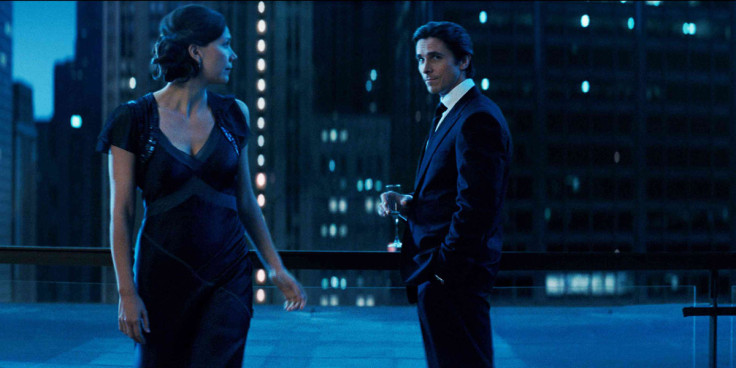
I've brought up the issue of Nolan's female characters before, and it is The Dark Knight that is often used to exemplify the director's problems in creating strong ones. Maggie Gyllenhaal's Rachel Dawes is a cipher, little more than the object of Dent and Wayne's desires and dreams, whose sole purpose in the film is to serve the stories of the men around her.
The Dark Knight being a film about men isn't a problem in of itself but it did lead to one of Nolan's worst examples of female characterisation.
This is a superhero film in which the hero is a constant. There's no origin or ending to Batman, he remains relatively absolute. Behind the mask however, Bruce Wayne has his dreams of a life free of Batman torn apart by the Joker's ploy to take Dent and "bring him down" to the level of the hero and villain – freaks, broken men.
The Joker's plan to reveal the true face of Gotham is really an effort – as Batman puts it – to show the world it is every bit as twisted and evil as he is. On the grand scale this does not work, as the two ferries he challenges fail to blow each other up, but on the smaller level he succeeds in breaking Dent's spirit and creating a psychopath.
Escalation is a key part of The Dark Knight. The idea that Batman's presence attracts the ludicrous and insane out of Gotham is a crucial to the story, as is the idea that things can only get worse before they get better.
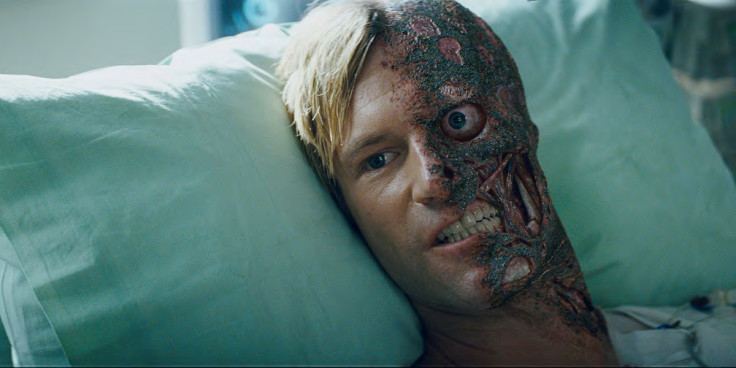
Bruce Wayne may be fighting the good fight but he dresses up as a bat to do it. He's a therapists' goldmine, just like the Joker, (Cillian Murphy's) Scarecrow and Two-Face. Issues of insanity and mental health have always been present in Batman tales and The Dark Knight is really the first film to delve into that properly.
As key a part as Bruce Wayne plays in the film, though, The Dark Knight is ultimately a tale about Gotham City and the "fight for its soul". Represented physically by Harvey Dent, both the Joker and Batman hope to mould him and the city in their images – and they succeed in various ways.
The Dark Knight Rises is undoubtedly more about Wayne than his city. Batman Begins was about both, The Dark Knight more about the latter. Through its setting, however, The Dark Knight is able to delve deeper into its ensemble rather than a single character and that spread gives it its grandiose feel.
The film also tells a neat allegory of the War on Terror and the freedoms given up to fight it. The Joker is a terrorist and to put a stop to him, Batman breaches the privacy of millions. It is not the most subtle commentary but it is an example of what made the film resonate so much with audiences.
There are problems with how the trilogy ends, and we will get to that in due course, but that doesn't impact the success of The Dark Knight as one of film's most effective pieces of cinema. A timely, unforgettable and intelligent blockbuster that can satisfy cinema-goers of all tastes and persuasions.
A classic in every sense.
Next week: Inception.
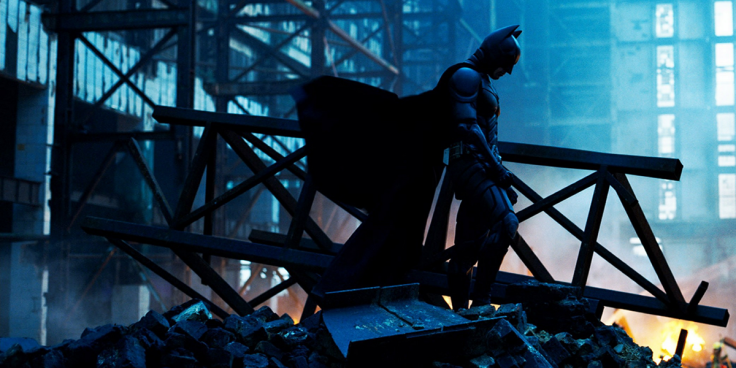
© Copyright IBTimes 2025. All rights reserved.






















